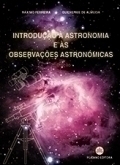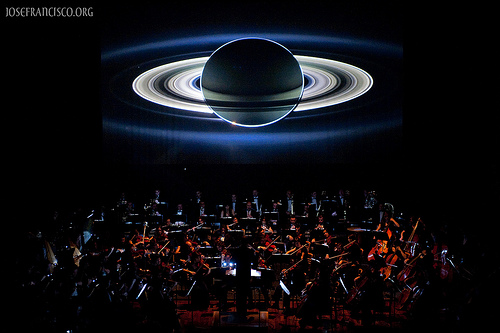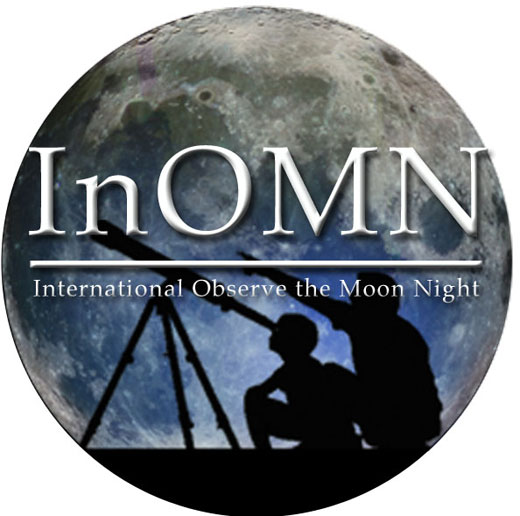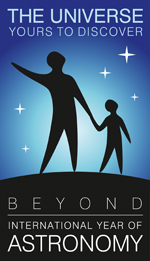IYA2009 Updates
13th Global Hands-on Universe Meeting
1 July 2010
GHOU 2010 is organized by Technische University Munich (TUM) and European Southern Observatory (ESO) in Munich, Germany.
August 1-2-3, 2010: GTTP/Training conference
This will be in Garching at TUM, where we will take advantage of the wonderful Garching Science infrastructure.
A very significant experience for most of our workshop attendees: ESA, ESO, Big Reactor, BMW factory, etc.
August 4, 2010: Conference Tours! To be announced.
August 5-6-7, 2010: GHOU conference at TUM in Garching.
Local Organizing Committee
- Andreas Kratzer, TUM
- Verena Kratzer, University of California, Berkeley
- Christine Wittmann, TUM
- Nastaran Matthes, TUM Informatics Dominik Bösl, TUM
- Christian Clemens, MPE + TUM
- Wolfgang Dorsch, Gymnasium Ettal
- Lars Lindberg Christensen, ESO
Main Topics
Workshop (August 1st -3rd)
- Galileo Teacher Training Program
- Software tools in computer science and astronomy GHOU Resources
- Dark Matter, Exo-Planets!
- The Universe Quest Game!
- Hands-on Activities
- Remote Telescopes
- High School Projects
- Visit to Garching Institutes
GHOU Main Conference (August 5th -7th)
- Hands-on Universe Around the Globe
- Galileo Teacher Training Programme
- Outreach Strategies
- School Projects and Discoveries, and Many New Opportunities!
- International School Projects
- Astronomy and Culture/Philosophy
- New Methods/Projects in Education
- Astronomical Software
GTTP2010 - Grants Results
30 June 2010
The IAU and UNESCO has earmarked a certain amount of funding to support IYA2009 related projects and activities in developing regions. This call for proposals comes via the Galileio Teacher Training Program cornerstone project and is thus targeted at providing seed funding and basic support to empower teacher training workshops in developing regions.
These small grants (up to 500 Euro) are intended to support organizations which are improving the science teaching in classroom worldwide. Efficient use of these funds to train teachers capable of further train other pears and successfully implement the learned resources and tools in classroom would result in a solid start of a local community for the global GTTP effort.
The funds shall be used to:
- Produce educational material to distribution to workshop participants
- Travel and subsistence for teachers attending the workshop, when needed
Funding Conditions
- Successful applicants will be required to sign a Terms of Reference and abide by the grant’s reporting criteria.
- Copies of all receipts must be presented to the GTTP coordination
- A report must be submitted by the end of the workshop
- And a list of teacher’s names and contacts for certification must be delivered.
- In case the workshop doesn’t take place the amount granted have to be reimbursed to GTTP coordination.
Selection Criteria used was:
1) Alignment with the goals of IYA2009 and GTTP.
2) Quality and relevance of workshop content.
3) Innovativeness and creativity of approach.
4) Clear timeline indicators.
5) Cost effectiveness of the project including a detailed budget.
6) Potential to raise funding from other sources
7) Degree of impact of the project with potential for sustainability.
Selected Countries:
Although the initial intention was to fund 10 workshops, GTTP decided to use the Mani Bhaumik Prize for Astronomy Excellence Funds to provide 2 more grants.
The countries with projects selected are:
- Macedonia
- Zambia
- Armenia
- Gabon
- Malta
- Morocco
- Nepal ( combined )
- Sri-Lanka
- Mozambique
- Jamaica
- Mongolia
- Vietnam
We had in total 23 applications it was very difficult to select the top 12 as so many initiatives deserve acclaim for what they’ve done. They were all a manifestation of a very strong will of GTTP promoters willing to build Beyond IYA2009 and we hope that those projects will find other means to support their activities.
Moreover, the author Guilherme de Almeida has kindly donated the following books to GTTP:
2 copies "Navigating the Night Sky": (To be donated to: Macedonia and Zambia)

Reference and synopsis: http://www.springer.com/astronomy/book/978-1-85233-737-7
From the reviews: http://www.springer.com/astronomy/book/978-1-85233-737-7?detailsPage=reviews
And 2books in Portuguese (These 2 copies will be donated to Mozambique):


"Roteiro do Céu": Almeida, Guilherme de, Plátano Editora, Lisboa, 2010. http://www.platanoeditora.pt/index.php?q=C/BOOKSSHOW/17
"Introdução à Astronomia e às Observações Astronómicas": Ferreira, Máximo; Almeida, Guilherme de", 7.ª edição, Plátano Editora, Lisboa, 2004. http://www.platanoeditora.pt/index.php?q=C/BOOKSSHOW/16
Please bear in mind that the GTTP coordination is devoted to continue this effort and more efforts are on the field to ensure a bright future to this unique network. To the jury our sincere thanks, to the selected projects success, to the ones left behind keep tuned and to all our GTTP promoters, Galileo Teachers and Ambassadors congratulations for the work well done and see you all Beyond IYA2009!!
More information:
Rosa Doran (Chair of GTTP)
Mobile Phone : +351 966 781 264
Email : info@galileoteachers.org
Website: www.galileoteachers.org
Astronomical Pictures at an Exhibition receives Award
28 June 2010

Theatre-goers of the Teatro Rojas in Toledo, Spain have selected the IYA2009 Special Project Astronomical Pictures at an Exhibition concert as the Best Show of 2009
More information (In Spanish):
- http://dclm.es/news/133/ARTICLE/67821/2010-06-22.html
- http://www.abc.es/20100623/toledo/luisa-martin-mejor-actriz-20100623.html
- http://www.castillalamancha.es/portal/Contenidos/Actualidad/default.asp?opactualidad=detalle®=86095
International Observe the Moon Night
28 June 2010

Seeing the moon ...in a whole new light.
18.09.2010
More information: http://observethemoonnight.org/
IYA2009 Updates
25 June 2010
The contributions of women to astronomy and space exploration
The list of women who have contributed to the world of astronomy as space, whether as scientists, scientist astronauts, medical doctors, or military officers who command or fly spacecrafts is lengthy, and the contributions of these courageous women are and have been vitally important. More information:http://www.astronomy2009.org/news/updates/956/
Symposium Earth & Space Science: Making Connections in Education and Public Outreach, 1 - 4 Aug., in Boulder, Colorado, USA:http://www.astronomy2009.org/news/updates/955/
McDonald Observatory Launches Dark Skies Initiative with Video and Radio Programs: http://www.astronomy2009.org/news/updates/954/
Space Chocolate, out of this world gingers: http://www.astronomy2009.org/news/updates/953/
Communicating Astronomy with the Public Journal #8 is out: http://www.capjournal.org/issues/08/index.php
The contributions of women to astronomy and space exploration
23 June 2010
by Theresa Rose
The list of women who have contributed to the world of astronomy as space, whether as scientists, scientist astronauts, medical doctors, or military officers who command or fly spacecrafts is lengthy, and the contributions of these courageous women are and have been vitally important.
Read more:http://www.helium.com/items/1425179-the-contributions-of-women-to-astronomy-and-space-exploration
The contributions of women to astronomy and space exploration series:
- 1of 3
by Theresa Rose
The list of women who have contributed to the world of astronomy as space, whether as scientists, scientist astronauts, read more
- 2of 3
In 1963, Valentina Tereshkova from the Soviet Union became the first woman to fly in space. read more
- 3of 3
by Dawn Hawkins
Many women have contributed to the vast knowledge gained from space travel and to astronomy. These women paved the way for read more
Earth & Space Science: Making Connections in EPO
23 June 2010
A Symposium, Aug. 1 - 4, in Boulder, Colorado
Hosted by the Astronomical Society of the Pacific (ASP)
and Geological Society of America (GSA)
------------------------------------------------------------------------------------------------------
We encourage you to make plans to attend this dynamic EPO Symposium
coming up at the beginning of August:
http://www.astrosociety.org/events/meeting.html
Early registration discounts end June 30th. For registration information, see:
http://astrosociety.org/events/2010mtg/registration.html
A set of fascinating geology hikes has now been scheduled for 9 am Sunday
morning, Aug. 1. See http://astrosociety.org/events/2010mtg/hikes.html.
Featured plenary speakers and panelists will include:
* Ed Prather and Emily CoBabe-Ammann on mutual interests of college
instructors and earth & space science EPO professionals
* Atmospheric Scientist Susan Solomon (who won the Nobel Peace Prize
along with Al Gore) updating us on global warming
* Peter Hewson, noted science education pioneer, on how people learn science
* Dennis Schatz, Michael Wysession and others on K-12 frameworks and standards for
earth & space science
* Rick Fienberg, Gary Lewis and others on citizen science across the disciplines
Here is a sampling of one-hour workshops that have now been
confirmed for this 2010 EPO conference:
* Making Connections with Underserved Communities, Broadening Participation
in the STEM Fields
* Supporting Online Communities
* NASA E/PO Networks - How to Use Them to Your Advantage
* Teaching Climate Change
* Teaching with Galileoscopes and Other Small Telescopes
* The Intersection of NASA Astrophysics E/PO and Higher Education
* Video Tips for Worry-Free Informal Presentations
* Exploring assessment tools for research and evaluation in astronomy
education and outreach
* Know Your Earth: A Fun Multi-Mission, Multi-Media View of NASA
Earth-Observing Satellites and Global Climate Change.
* Highlighting the Moon: Using Lunar Education Resources to Enhance K-12
STEM Education for Classrooms and Science Centers
* NASA SMD Earth and Space Science Education Product Review
* Activities Helping Students Explore the Science of Climate and Ways to
Take Action for the Health of the Planet
* Dealing with Public Fears of Doomsday 2012
* Astrophotography for All: Capturing the Colorful Cosmos with Online
Telescopes
* Surrounded by Science - Improve Your Practice by Exploring What Research
Says about Learning Science in Informal Environments
* u *can* diy! Using Social Media in Science Education and Public Outreach
Programs to Connect with Audiences
* Astronomy Meets the Environmental Sciences: Activities for Informal and
Formal Educational Settings
Session lead presenters at the symposium will be representing organizations
such as:
- National Optical Astronomy Observatory
- Space Sciences Laboratory -- U. of California, Berkeley
- Space Telescope Science Institute
- Lunar and Planetary Institute
- University of Arizona
- NASA Goddard Space Flight Center
- NASA Lunar Science Institute
- The Institute for Global Environmental Strategies
- University Corporation for Atmospheric Research
- Lawrence Hall of Science
- Gemini Observatory
- University of Colorado at Boulder
- University of Wyoming, Center for Astronomy & Physics Education Research
- Cooperative Institute for Research in Environmental Sciences
- SETI Institute
- Harvard-Smithsonian Center for Astrophysics
- Pacific Science Center
Inexpensive hotels and campus residence halls have been arranged, but
lodgings are going fast. More info is at
http://astrosociety.org/events/2010mtg/lodging.html.
There will also be a concurrent symposium, Cosmos in the Classroom, for
instructors of introductory college courses in astronomy and related fields.
See http://astrosociety.org/events/2010mtg/cosmos.html.
McDonald Observatory Launches Dark Skies Initiative with Video, Radio Programs
22 June 2010
The University of Texas at Austin McDonald Observatory is kicking off a campaign to promote awareness of the causes, effects, and solutions to light pollution — stray light shone into the sky where it’s wasted, rather than down on the ground where it’s useful.
The Observatory will be promoting dark skies awareness through its nationally syndicated StarDate radio program, its Spanish-language radio program Universo, and through online video and summer programs on-site at its home in West Texas.
The radio programs will feature dark skies information daily in the coming week (June 28-July 4). For more information on these programs and to find a station in your area, visit the StarDate site and the Universo site.
The Observatory has produced a three-minute video detailing easy steps that we can all take to preserve the night sky. This video is posted at the Observatory’sDark Skies Web site, and on its new YouTube channel. The video also will be shown to the 55,000 annual visitors to McDonald Observatory at the Cullen Theater in the Frank N. Bash Visitors Center.
Stray light cast into the sky by poorly designed security and street lights, porch lamps, and neon signs fill the sky with so much light that they obscure the rest of the universe beyond, including the beautiful Milky Way, and hides all but the brightest meteors. Only a handful of bright stars and planets shine through it.
“McDonald Observatory is fortunate to have the darkest night skies of any professional observatory in the continental United States,” said Dr. Tom Barnes, McDonald Observatory Superintendent. “The sky out here makes this a great place for big telescopes and research. For years, we’ve put on public programs and worked with schools to bring the wonders of the universe to as wide an audience as possible. Now we want to share the message that dark skies are what makes our work possible, and preserving dark skies is worthwhile for everyone.”
Light pollution isn’t only a problem for astronomers and skywatchers. TheInternational Dark-Sky Association estimates Americans lose $10 billion each year paying for light that is wasted — as it’s shone into the sky, instead of down on the ground where it’s needed. This wasted light isn’t making people safer in parking lots and outside their homes. And this unusable light is powered by wasted electricity, unnecessarily adding thousands of tons of carbon dioxide into the atmosphere annually.
McDonald Observatory’s dark skies efforts are funded by a gift from Premack.com of San Antonio.
“It’s important to us to get the word out about correcting light pollution, about how you can take action to preserve dark skies, and about how you can save money by using responsible lighting,” Ruthie Premack said.
“This is not only a problem for astronomers, but for everyone — for wildlife and for people who live in cities where the dark skies are drowned out by wasted light,” Paul Premack said. “You can make a difference by being wise about the kinds of lighting you use to light the outside of your homes, and by supporting city and county lighting ordinances.”
For many years, McDonald Observatory has worked with nearby communities like Jeff Davis County, Marfa, and Alpine on lighting ordinances to keep skies dark and streets safe.
The Premacks’ donation also helps to fund summer programs for Boy Scout groups at McDonald Observatory. The programs will include a demonstration of best lighting practices, and Scouts will receive red flashlights that preserve dark-adapted vision for skywatching.
As well, the half-dozen workshops for K-12 teachers held at the Observatory this summer will include dark skies information, best-practices lighting demonstrations, and provide red flashlights to about 100 teachers.
Note: For more information on McDonald Observatory’s dark skies program, visit our Dark Skies site.
Space Chocolate:Out of this world gingers
21 June 2010

Artisan du Chocolat has developed a new Space Collection chocolate range, in celebration of the International Year of Astronomy. The Space theme chocolate is inspired by an astronaut who took packages of Artisan du Chocolat's chocolate-covered ginger to the International Space Station with her. These cute-to-eat Space collection chocolate are: the aforementioned chocolate-gingers are packaged in a cardboard rocket, there's chocolate flying saucers filled with popping candy, ganache-filled 'planets', and an adorably cute little chocolate spaceman. Danish freelance designer Ivan Riis Henriksen developed the graphics and packaging for the chocolates.
From: http://blogartscenter.blogspot.com/2010/06/design-year-book_17.html
More information: http://www.artisanduchocolat.com/ArtisanduChocolatSite/product/ginger%20shuttle.htm
IYA2009 Updates
18 June 2010
Communicating Astronomy with the Public Journal #8 is out: In this issue of CAPJournal, the artist Tim Roth and his collaborators give us a behind the scenes look to their science–art project Cosmic Revelation and Matthew McCool looks back in time to the clash between science and the humanities and much more. http://www.capjournal.org/issues/08/index.php
Universe Awareness at the International SKA Forum 2010: http://www.astronomy2009.org/news/updates/951/
Our Space website and competition for schools: To see the amazing videos, find out more about the competition and get tips on how to create a digital space adventure check out the Our Space website. http://www.our-space.org/
In the dark: Sky observations cast light on pollution
Globe at Night, which promotes the value of dark skies, set a record in 2010 with more than 17,800 measurements of night sky light pollution from people in 86 countries. Read more here: http://www.tucsonsentinel.com/local/report/052710_darkskies
Astronomy Career Guide
A new Guide to Career Education which focuses on providing Astronomy students and professionals with the best astronomy career resources on the internet: http://www.guidetocareereducation.com/tips-and-tools/astronomy-careers
Astro Book Drive for Tanzania concluded successfully.
The donations were raised by the members of Greater Portland Astronomical Society in Maine, USA and donated to UNAWE-Tanzania group. Please find the report here: http://astrodrive.lakdiva.net/projects/tanzania/bookdrive_report.html More information about the Astro Book Drive: http://astrodrive.lakdiva.net/
Space Generation Congress
Registrations are open for The Space Generation Congress 2010 (SGC2010) taking place in Prague, Czech Republic, September 23-25 2010. Students and young professionals in the space sector are invited to submit their applications by July 1, 2010. read more: http://www.spacegeneration.org/index.php/activities/space-generation-congress
setiQuest is looking for a community manager intern
If you are ready to join the setiQuest (http://setiquest.org/) and guide this tribe, please send your resume and brief note describing your place in the cosmos to: jobs@setiquest.org
Search IYA2009 Updates

National Nodes: 148
Organisational Nodes: 40
Organisational Associates:33
National Websites: 111
Cornerstone Projects: 12
Special Task Groups: 11
Special Projects:16
Official Products:8
Media Partners:22


